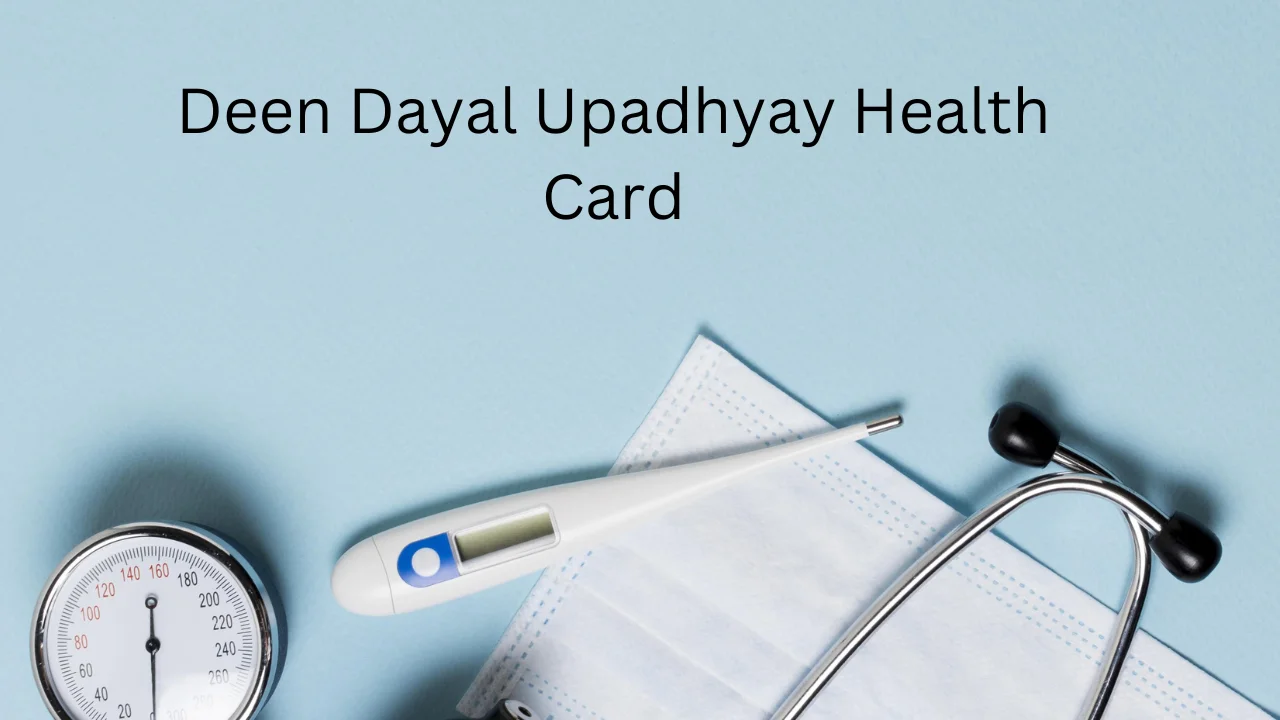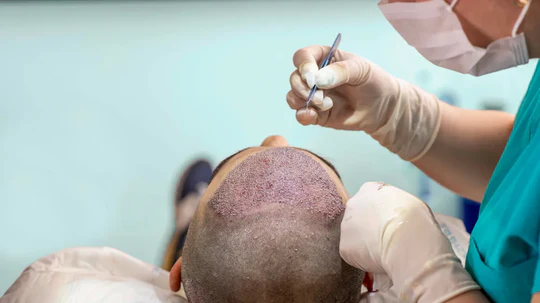Deen Dayal Upadhyay Health Card Way to Affordable Healthcare

In today’s fast-paced world, access to quality healthcare is a crucial need for every individual. In India, ensuring affordable healthcare for all citizens has been a significant priority for the government. One such initiative aimed at improving healthcare accessibility is the Deen Dayal Upadhyay Health Card. Launched as part of various state-level and national health schemes, the health card is designed to provide free or subsidized healthcare services to people from economically weaker sections of society.
This Health Card has become a lifeline for many, especially those who cannot afford high medical expenses. This article will provide an in-depth overview of what the Deen Dayal Upadhyay Health Card is, how it works, its benefits, and who is eligible to apply for it.
What is the Deen Dayal Upadhyay Health Card?
The Deen Dayal Upadhyay Health Card is a government-issued card that allows beneficiaries to receive healthcare services at minimal or no cost. It was introduced to help bridge the gap between expensive healthcare services and low-income families. The card provides access to medical treatments in government hospitals and private healthcare facilities that are part of the scheme. It has been a game-changer for millions of families across India, offering financial relief during medical emergencies.
Why Was the Deen Dayal Upadhyay Health Card Introduced?
India’s healthcare system faces numerous challenges, particularly when it comes to ensuring access to affordable medical care for underprivileged communities. Rising medical costs, a lack of adequate infrastructure, and a disparity in rural and urban healthcare facilities have made it difficult for many to receive timely treatment. Recognizing this, the Indian government introduced this Health Card to provide citizens with affordable healthcare and reduce their financial burden.
The card allows families to access cashless treatments, ensuring that they do not have to bear the immediate financial costs of hospitalization or medical procedures. This initiative is particularly beneficial for rural areas, where access to quality healthcare is limited.

Key Benefits of the Deen Dayal Upadhyay Health Card
The Deen Dayal Upadhyay Health Card offers several benefits to its users, making it an indispensable tool for healthcare access. One of the key advantages is that it enables cashless treatments in empaneled hospitals. Patients can receive treatment without having to pay upfront, easing the financial stress on their families.
Another significant benefit is the wide coverage of medical services provided under the card. From basic healthcare checkups to more complex surgeries, this Health Card covers a variety of medical treatments. This includes free consultations, diagnostic tests, hospitalization, and even post-treatment care in certain cases. The card is also accepted in a growing number of private hospitals that have been empaneled under the scheme.
Also Read: Wellhealthorganic.com Simple Ways To Improve Digestive System in Hindi
Furthermore, the card can be used for preventive healthcare services. Routine health checkups and early detection of diseases can significantly reduce the risk of developing serious health conditions, making this feature an essential part of the Deen Dayal Upadhyay Health Card.
| Benefits | Description |
|---|---|
| Cashless Treatment | Beneficiaries can avail treatments without paying upfront. |
| Wide Coverage of Services | Covers consultations, diagnostic tests, surgeries, and hospitalization. |
| Empaneled Hospitals | Accepted in both government and private hospitals that are part of the scheme. |
| Preventive Healthcare | Includes routine health checkups and early detection of diseases. |
Eligibility for the Deen Dayal Upadhyay Health Card
To ensure that the scheme benefits those who need it the most, this Upadhyay Health Card is generally targeted towards economically weaker sections of society. The eligibility criteria vary slightly from state to state, depending on the specific health schemes implemented by the state governments.
Also Read: Comprehensive Guide to the SBI Health Insurance Premium Chart PDF
Typically, individuals from low-income families, below the poverty line (BPL), or those belonging to certain underprivileged groups are eligible to apply for the card. Some states also provide the card to senior citizens, women, and individuals with disabilities to ensure that vulnerable groups have access to essential healthcare services.
General Eligibility Criteria:
- Individuals from economically weaker sections
- Below Poverty Line (BPL) families
- Senior citizens and women in some states
- People with disabilities
The application process for the card is straightforward. Eligible individuals can apply online through their state’s official health department website or visit designated government offices to submit their application. Once the application is processed, the card is issued, and beneficiaries can start using it to avail themselves of healthcare services.
Also Read: Wellhealthorganic.com How Protein Can Help You Lose Weight
Features of the Health Card
The Deen Dayal Upadhyay Health Card offers a wide range of features designed to make healthcare accessible and affordable for underprivileged citizens.
1. Cashless Treatment
One of the most important features of the Deen Dayal Upadhyay Health Card is the provision of cashless healthcare services. This means that cardholders can receive treatments without paying upfront costs at government hospitals and empaneled private healthcare centers. This is especially beneficial for low-income families, ensuring that financial constraints do not delay necessary medical care.
2. Wide Coverage of Medical Services
The health card covers a broad spectrum of healthcare services. These include consultations with specialists, diagnostic tests such as blood tests and X-rays, surgeries, hospitalization, and even post-treatment care. The scheme aims to ensure that patients receive comprehensive medical care from start to finish without bearing a heavy financial burden.
3. Empaneled Hospitals
The Deen Dayal Upadhyay Health Card is accepted at a large network of government and private hospitals that are part of the scheme. This extensive network ensures that patients have access to quality medical services, whether they live in rural or urban areas. The inclusion of private hospitals expands the reach of the scheme, offering more choices for healthcare providers.
4. Free Preventive Healthcare Services
Apart from curative treatments, the Deen Dayal Upadhyay Health Card also emphasizes preventive healthcare. Cardholders can access free health checkups, which help in early detection of diseases. This preventive approach reduces the risk of developing severe health conditions, leading to long-term cost savings and better health outcomes.
5. Financial Protection for Low-Income Families
The primary objective of the Deen Dayal Upadhyay Health Card is to offer financial protection to individuals and families who cannot afford high medical expenses. It covers the cost of medical treatments, ensuring that beneficiaries do not have to worry about hospital bills, surgery costs, or post-treatment fees.
6. Easy Application and Renewal Process
The application process for the health card is relatively simple, with both online and offline modes available. Eligible individuals can apply through state health department websites or visit designated government offices to submit their application. Renewal of the card is also straightforward, ensuring continued access to healthcare services.
7. Special Provisions for Vulnerable Groups
Certain groups, such as senior citizens, women, and individuals with disabilities, may receive special provisions or priority access under the Deen Dayal Upadhyay Health Card scheme. This ensures that the most vulnerable sections of society receive the care and attention they require.
8. No Limit on Medical Services
Unlike many private insurance plans, the Deen Dayal Upadhyay Health Card does not impose a limit on the number of services or treatments a patient can receive. This allows beneficiaries to access healthcare whenever they need it, without worrying about exhausting their coverage.
How to Use the Deen Dayal Upadhyay Health Card?
Using this Health Card is a simple process. Once a person receives the card, they can visit any empaneled hospital to access the healthcare services available under the scheme. At the hospital, they need to present their Deen Dayal Upadhyay Health Card along with valid identification proof. The hospital will verify the card details and provide the necessary treatment without charging the patient upfront.
This Health Card also includes provisions for cashless hospitalization, where all medical expenses are covered by the government or insurance under the scheme. This reduces the financial burden on the family during emergencies or prolonged treatments.
Importance of the Deen Dayal Upadhyay Health Card for Rural Healthcare
One of the critical objectives of this Health Card is to improve healthcare access in rural and remote areas of India. Rural communities often face a severe shortage of medical infrastructure and qualified healthcare professionals. The card allows residents of these areas to travel to nearby empaneled hospitals for treatment, thus bridging the gap in rural healthcare services.
Also Read: Wellhealthorganic.com Vegetarian Protein Sources Comprehensive Guide
Moreover, the scheme encourages hospitals in rural areas to upgrade their facilities and offer better medical care, further improving the overall healthcare system in these regions.
Conclusion
The Deen Dayal Upadhyay Health Card is a monumental step towards making healthcare affordable and accessible to every citizen, especially those from economically weaker sections. With its wide range of benefits, including cashless treatment, preventive healthcare services, and a large network of empaneled hospitals, it has been instrumental in providing timely and efficient medical care to millions.
As medical expenses continue to rise, initiatives like this Health Card offer a lifeline for families who otherwise could not afford critical healthcare services. With this card, the government has not only improved access to healthcare but also reduced the financial burden on many families, allowing them to focus on what truly matters—health and well-being.
Also Read: Wellhealthorganic Vitamin B12: A Comprehensive Guide






